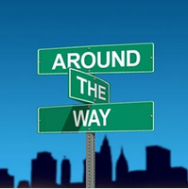These are a few of my favorite things that are related not only to this class but also the intersection of race and technology more broadly.
Initiatives to diversify the production of new technology
We need more people like Omar Wasow and organizations like Black Girls Code because one of the things I think is most important about the future of technology is the explicit effort to diversify technology creators. We need more Black Planets, more JackandJillPolitics.coms, we need people from diverse backgrounds, who because of those backgrounds have diverse ways of thinking, can create diverse products. I, for example, suggested to Ethan Zuckerman last week during our workshop that he should maybe consider involving people of color who are used to having to follow more than one kind of news to help design the products that diversify users’ newsfeeds he is interested in. I also like these kinds of initiatives because I am a firm believer in marginalized groups of people creating content and safe, counter-hegemonic spaces for themselves without the interference of privileged groups.
Apps that help address structural issues like the wealth the gap

“Around The Way App – Android Apps on Google Play.” Around The Way App – Android Apps on Google Play. N.p., n.d. Web. 19 Nov. 2013.
This is a project that we did not talk about in class but I personally would love to see more projects like this.
Around the Way is a mobile app that helps users locate black owned business around them. Though many people, myself included, have experienced problems with its functioning, I think the idea behind it was absolutely wonderful because support of black owned businesses can have many positive ramifications with the expansion of black wealth and promulgation of diverse representations of black people being just a few.
Ways of circumventing traditional access to power in production
Bread Pig can help people who may get missed by crowd funding sources like Kickstarter because of engrained user preferences for white aesthetics, more standard uses of the English language and intimate know how on structuring successful campaigns. I like this project, and would like to see more things like it, because it provides people who may be on the outside of more traditional informational networks to be able to self-publish. Like Around the Way, Bread Pig can aid in the visibility and success of black entrepreneurship.
People using preexisting, ordinary sites to makes extraordinary things happen
I love watching black Twitter lay the smack down on blatantly racist actions and creating tangible social change. I love that because of her web series on YouTube, Issa Rae is going to be working on a series produced for television by Shonda Rhimes. I find this kind of utilization of already existing technologies to create space for marginalized voices inspiring.
Applications of traditional humanities to push back against traditional cannons
I would like to see more institutions take advantage of social media and developing technology as they pursue social justice initiatives like justpublics@365. I also am enamored with scholars of the digital humanities who work on expanding traditional ideas of scholarship by moving away from institutions and sharing knowledge more freely. Since I have already gone on about how much I love sites like the Crunk Feminist Collective, I will refrain from doing so again and just direct you here.



